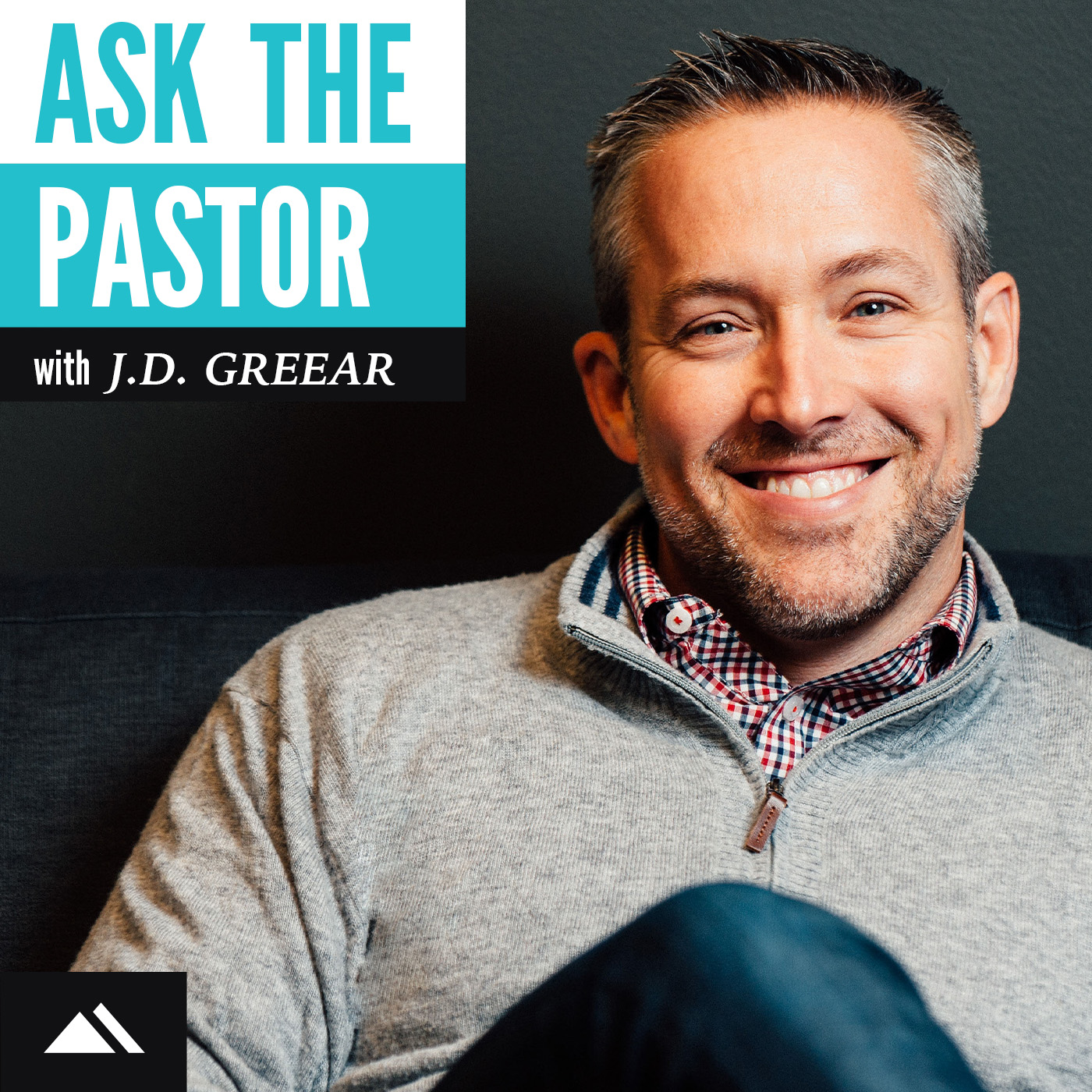

Ask the Pastor with J.D. Greear
J.D. Greear
Ask the Pastor with J.D. Greear is a weekly podcast that answers tough questions and tackles relevant issues in a way that is filled with grace, understanding, and wisdom from God’s Word. Hosted by Matt Love.
Episodes
Mentioned books

Jul 8, 2024 • 15min
Greatest Hits: If a Child Wanders From the Faith, Is It the Parents’ Fault?
In this week's episode of Ask the Pastor, Pastor J.D. shares how parents of children who have wandered from the faith can cling to God’s truth that he is still working.

Jul 1, 2024 • 11min
Greatest Hits: Who or (What) Is a Christian?
In this week's episode of Ask the Pastor, Pastor J.D. answers one of our most-asked questions: Who or (What) is a Christian?

Jun 24, 2024 • 10min
Greatest Hits: Can You Lose Your Salvation?
In this week's episode of Ask the Pastor, Pastor J.D. answers one of our most-asked questions: Can you lose your salvation?

Jun 17, 2024 • 12min
Greatest Hits: Can a Christian Be Possessed by a Demon?
This summer we are looking at some of the most popular Ask the Pastor episodes over the years. This week, Pastor J.D. gives some helpful definitions and clarifications when it comes to the Christian and spiritual warfare.

Jun 10, 2024 • 9min
Greatest Hits: How Do You Honor a Toxic Parent?
This summer we are looking at some of the most popular Ask the Pastor episodes over the years. This week, Pastor J.D. discusses how to honor a toxic parent.

Jun 3, 2024 • 0sec
Greatest Hits: When Is It Okay to Leave a Church?
This summer we are looking at some of the most popular Ask the Pastor episodes over the years. To start, Pastor J.D. discusses what’s important to keep in mind when it comes to leaving a church and choosing one.

May 20, 2024 • 12min
Should Christians Gamble?
In this week's episode of "Ask the Pastor," J.D. Greear answers "Should Christians Gamble?"

May 13, 2024 • 14min
Can Christians Be Depressed?
In this week's episode of "Ask the Pastor," J.D. Greear answers a question submitted by a listener. They asked, "Can Christians Be Depressed?"

May 6, 2024 • 9min
Is Cremation Wrong?
In this week's episode of "Ask the Pastor," J.D. Greear answers a question submitted by a listener. They asked, "Is Cremation Wrong?"

Apr 29, 2024 • 19min
How Should Christians Vote In the 2024 Election?
In this week's episode of "Ask the Pastor," J.D. Greear answers a question submitted by a listener. They asked, "How Should Christians Vote In the 2024 Election?"


